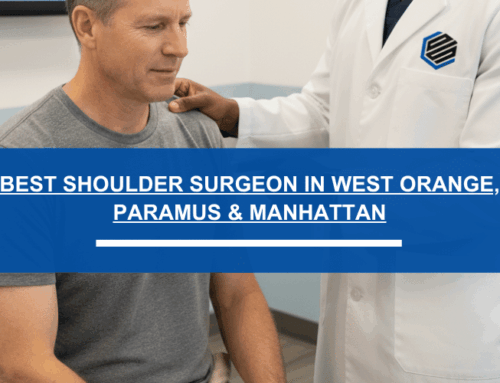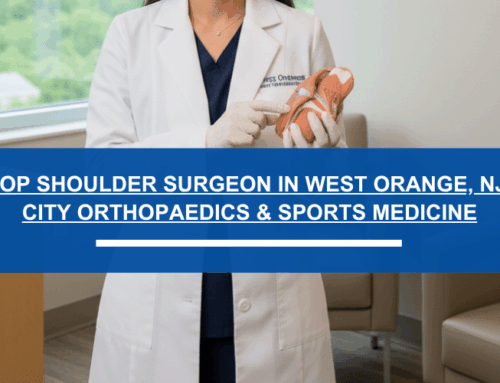The COVID-19 pandemic has required that the country take protective measures to prevent the spread of the disease. Due to this, New Jersey and New York have issued orders to postpone elective surgeries to help ensure that resources are available for severely ill patients who may need them.
An elective surgery is a procedure that is done for a medical condition that is not urgent or life-threatening. Many orthopaedic procedures fall into this category. While an orthopaedic condition may be painful or limit function, it is usually not life-threatening and surgery can be safely postponed.
A delay in your surgery may be disappointing. You may have already asked for time off from work for the procedure or arranged for a friend or family member to help during your recovery at home. Nevertheless, the COVID-19 pandemic has created an unexpected national emergency.
What can you do in the meantime? In many cases, there are some simple nonsurgical treatments that can help alleviate painful symptoms until your surgery can be rescheduled.
Orthopaedic Conditions and Nonsurgical Treatments
Listed below are several common orthopaedic problems, along with some frequently recommended nonsurgical treatments. If you are already doing some of these treatments, you can continue on with them until your rescheduled surgery. If not, be sure to check with your surgeon to ensure that they are appropriate for your specific situation.
Arthritis
You may be waiting to have joint replacement surgery on your hip, knee or shoulder. More than likely this is due to painful arthritis in the affected joint.
Until your surgery can be rescheduled, the following treatments may be helpful:
-Changing your activities to avoid doing things that cause painful symptoms
-Using nonsteroidal anti-inflammatory drugs (NSAIDs) to control pain and swelling
-Appling either ice or heat to the affected joint, depending on which is more comfortable for you
-In certain situations, an injection of a corticosteroid into the joint can help relieve pain until your surgery can be rescheduled.
If you are suffering from arthritis in your hip or knee, try to limit walking and avoid stairs as much as possible. If you have a painful shoulder, avoid heavy overhead lifting.
In addition, it is always important to exercise as this can preserve range of motion in the affected joint.
Sports Injuries
If you are awaiting surgery for a sports injury—such as a rotator cuff tear in the shoulder or a meniscus tear in the knee—exercise or physical therapy can help you maintain range of motion and strength in the affected joint.
If your knee is unstable, you should avoid activities that involve pivoting, jumping or rapidly changing direction, as these actions might cause your knee to give out and result in a fall. If you have a meniscus tear in your knee and plan to have arthroscopic surgery, use of a knee support or knee brace and anti-inflammatory medication may help alleviate your symptoms until the procedure can be done.
Emergency Surgery
Most hospitals will allow procedures that need to be done on an emergency or urgent basis to go forward. Emergency or urgent orthopaedic procedures may include:
-Fractures in which the pieces of bone are out of place
-Tendon ruptures
-Open wounds
-Infections
-Bone tumors
Some of these conditions require that surgery be done right away, others within a few days. If you are experiencing any of these conditions, our office can advise you as to the best timing of any emergency procedure.
Communicating With Our Office
If you have any questions or problems during the pandemic, please do not hesitate to contact our office or Book your Appointment Online.
Our priority is to safely provide care for all of our patients. In order to do so, we are now offering Telemedicine appointments. This allows you to meet face-to-face with one of our providers through the use of a phone, tablet, or computer. You can describe your symptoms, show us movements that cause pain and ask any questions you may have. We are also happy to speak with you over the telephone if you prefer.
To make a Telemedicine appointment, please call our office at 201-500-9450 (New Jersey) or 212-433-2662 (New York). Our office will do all that we can to accommodate your orthopaedic needs and concerns during this pandemic.






